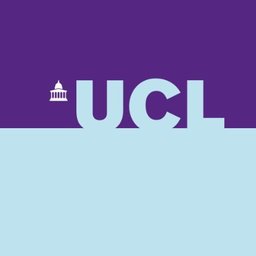Phd Studentship Molecular Mechanisms Driving Cancer Initiation After Tissue Injury
London, ENG, GB, United Kingdom
Job Description
Ref Number
B02-09654
Professional Expertise
Research and Research Support
Department
School of Life & Medical Sciences (B02)
Location
London
Working Pattern
Full time
Salary
See advert text
Contract Type
Fixed-term
Working Type
Hybrid
Available for Secondment
No
Closing Date
21-Nov-2025
About us
------------
We investigate how cellular plasticity contributes to cancer initiation and progression, with the goal of identifying prognostic markers and new therapeutic targets.
We are a young, collaborative, and ambitious group, seeking a highly motivated PhD student with a passion for cancer biology and the drive to pursue impactful, cutting-edge research.
More detailed information about the research project is available on request from m.bernabe-rubio@ucl.ac.uk
About the role
------------------
Project Overview
Cell plasticity is a hallmark of cancer progression, enabling cells to evade therapy and adapt to hostile environments. One key form of plasticity--
dedifferentiation
--occurs when specialised cells revert to a stem-like state, a process that can be triggered by epithelial injury. While this is transient during normal wound healing, it can persist in cancer, suggesting a link between tissue injury and tumour initiation.This PhD project will explore how wound healing programmes contribute to cancer initiation, focusing on the molecular mechanisms of dedifferentiation. Building on recent findings that
Myc-dependent mechanotransduction
promotes dedifferentiation (Bernabe-Rubio et al., 2023), the student will usein vitro
andmurine models
, combininglineage tracing
andmulti-omic approaches
to uncover how wound-experienced cells become vulnerable to malignant transformation. The model system will becutaneous squamous cell carcinoma
, the second most common epithelial cancer.Research Environment
The student will join the
Cancer Cell Plasticity Group
, led by Dr Miguel Bernabe-Rubio, and be co-supervised by Prof Clare Bennett, a leading expert in skin immunology. The UCL Cancer Institute offers a vibrant, collaborative research environment with access to cutting-edge facilities in genomics, proteomics, imaging, pathology, and transgenesis.More about the Institute: UCL Cancer Institute
About you
-------------
Candidate Profile
Essential:
First-class Honours degree in molecular biology, cell biology, immunology, or related field. Experience with cell culture and animal models. Strong motivation and understanding of cancer biology. Excellent analytical, problem-solving, and communication skills. Ability to work independently and collaboratively.
Desirable:
Peer-reviewed publications. Bioinformatics experience.
Applicants must qualify for
UK Home fee status
and meetUCL PhD admissions
criteria
Key Dates
Application Deadline:
21 November 2025Shortlisting:
Week commencing 24 November 2025Interviews:
Week commencing 8 December 2025Start Date:
1st Feb 2026How to Apply
Submit the following by
21 November 2025
using the apply button.CV
including:Contact details of two referees (one academic).
A short statement (<500 words) explaining how your experience aligns with the project and person specification.
Academic transcripts and certificates
(PDF format). Include official English translations if applicable.References:
Ask your referees to email their letters directly to
ci.hr-office@ucl.ac.uk
by the deadline. Subject line must include the studentship title and your surname.For questions about the project, contact Dr Miguel Bernabe-Rubio:
m.bernabe-rubio@ucl.ac.uk
For application queries, contact:
ci.hr-office@ucl.ac.uk
What we offer
-----------------
This is a full time fully funded 4-year PhD studentship funded by Cancer Research UK, successful candidates will receive a
non-taxable annual stipend of 24,219
covering tuition fees at the Home rate.
Our commitment to Equality, Diversity and Inclusion
-------------------------------------------------------
As London's Global University, we know diversity fosters creativity and innovation, and we want our community to represent the diversity of the world's talent. We are committed to equality of opportunity, to being fair and inclusive, and to being a place where we all belong. We therefore particularly encourage applications from candidates who are likely to be underrepresented in UCL's workforce. These include people from Black, Asian and ethnic minority backgrounds; disabled people; LGBTQI+ people; and for our Grade 9 and 10 roles, women.
Our department holds an Athena SWAN Gold award, in recognition of our commitment and demonstrable impact in advancing gender equality.
Beware of fraud agents! do not pay money to get a job
MNCJobs.co.uk will not be responsible for any payment made to a third-party. All Terms of Use are applicable.
Job Detail
-
Job IdJD4059605
-
IndustryNot mentioned
-
Total Positions1
-
Job Type:Full Time
-
Salary:Not mentioned
-
Employment StatusFull Time
-
Job LocationLondon, ENG, GB, United Kingdom
-
EducationNot mentioned

